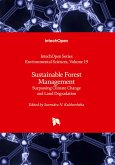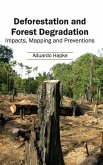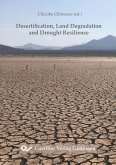The growth in the human population has forced mankind to convert forested land into other land uses such as agricultural land, residential, urban, road construction and mining activities. The degradation of forest due to anthropogenic activities is significantly reducing forests in the world. These practices result in significant impacts on the forest structure, species composition and ecology, which will consequently reduce forest productivity and ecosystem functions. Due to deforestation, half of the earth's vegetation surface has reduced to one-third, resulting in large degraded areas. The significant reduction of the forest areas requires appropriate planning for sustainable management of the forests. This book reviews the extent and consequences of deforestation around the world. It highlights case studies of the causes of deforestation in Malaysia, Korea, India, Bangladesh, Columbia, Brazil and Mali. It is hoped that the book will provide insights on the importance of effective forest planning and management for the sustainable development of forest resources.
Hinweis: Dieser Artikel kann nur an eine deutsche Lieferadresse ausgeliefert werden.
Hinweis: Dieser Artikel kann nur an eine deutsche Lieferadresse ausgeliefert werden.








